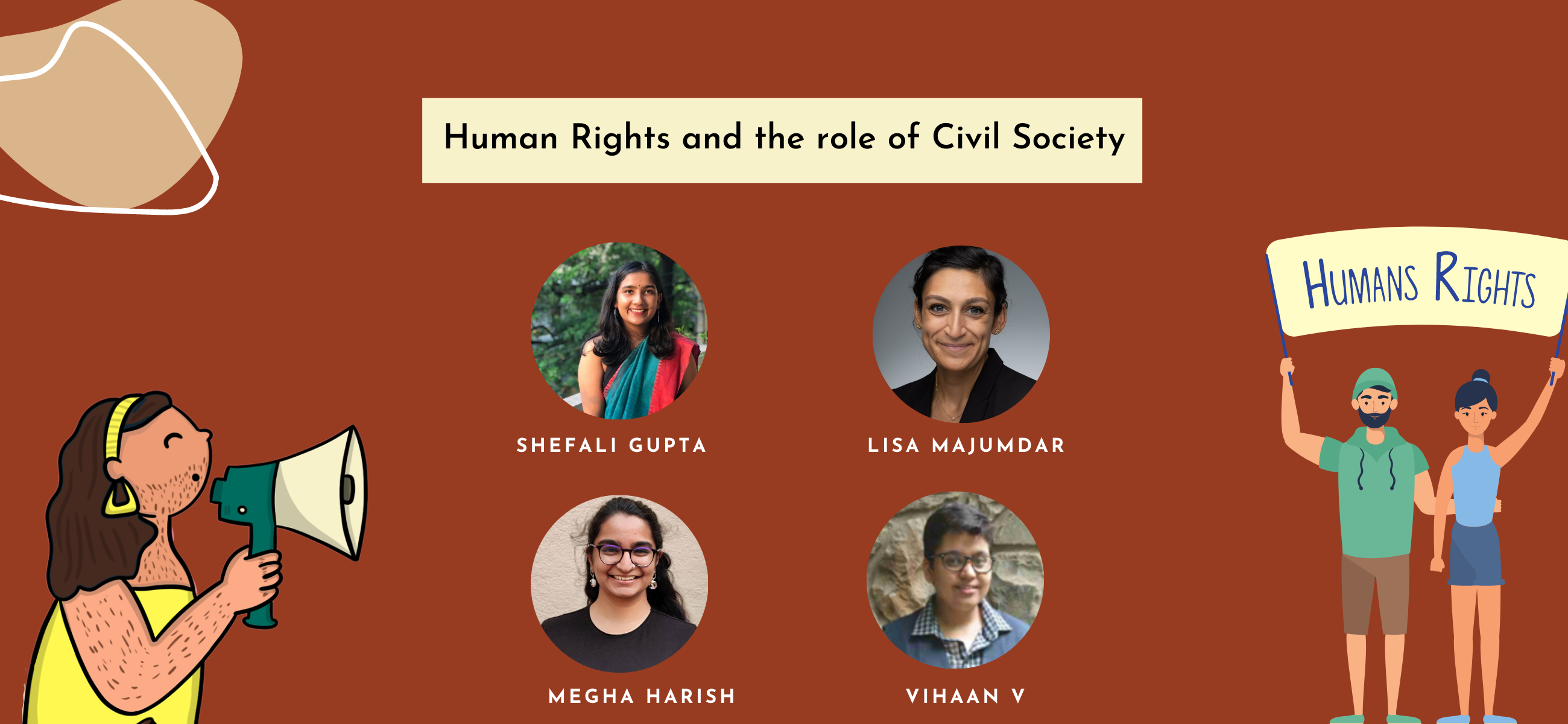Human Rights and the Role of Civil Society

On 24th March 2022, One Future Collective hosted an IG Live on ‘Human Rights and the Role of Civil Society,’ moderated by Shefali from India Education Collective. She was joined by Lisa Majumdar, a part of Civicus, Megha, a researcher, and Vihaan, a senior campaign associate at Haiyya. The conversation provides unique insights into how human rights in India are increasingly under threat and civil society’s role in protecting them.
The conversation started with the proposal to implement a state-wide legal framework to ensure journalists’ safety across the nation. Megha pointed out that the freedom of the press in India is threatened, and journalists often face violence from the state and the police. She noticed how journalists who did not condone the government openly were the safest; otherwise, they faced state-sanctioned violence. She noted how it was essential to look at the Civil Protection Act and the ethics of the IT rules and guidelines. Lisa added that the state should and needs to protect its journalists and have clear policies to ensure that all data remains encrypted.
The conversation then turned to how the Covid-19 pandemic saw an interaction between technology and civil society and how that should be acknowledged using the framework of human rights. Vihaan talked about the challenges that Haiiya faced and their learnings while helping DBA and trans or queer youth during the pandemic. Vihaan mentioned how the young people were not just affected at the individual level but also collectively, as their right to life and access to shelter and food was hampered. People could not move out of their houses, labourers could not return to their homes, and sex workers also stopped earning. It was the state’s responsibility to protect people’s rights and care for their needs during such times.
However, it failed to provide for its citizens adequately, so civil society had to step in. The social welfare schemes launched by the state were not sufficient and inaccessible to most people it targeted due to lack of documentation. Vihaan further mentioned that while Haiyya does not generally provide needs-based services, it felt the need to intervene in domestic violence or abuse cases. Young women and transpeople’s sexual rights and health rights were specifically affected, as transpeople could not access hormones that were gender-affirming and life-saving.
The conversation then turned to how the state has suspended the FCRA license of many voluntary organizations and NGOs and how these organizations can move forward and cope in such a situation. Lisa spoke of the crucial nature of foreign funding and global operations management in such a case and the need for these organizations to maintain a functioning democracy. Megha also emphasized the importance of awareness-raising while challenging the positive image that the government maintains on a global level instead of providing state support. The civil society also took up collective responsibility and provided continuous support to challenge structural oppression, build awareness, and advocate for the rights of marginalized communities during the pandemic.
Towards the end, Lisa talked about how Civicus uses quantitative data and qualitative reports, and information from around the world to prepare holistic reports about governments worldwide. Megha stressed the need for police reform as the police often perpetuated violence on behalf of the state and harassed civil society organizations or journalists. She pointed out how policing became harsher during civil society protests with UAPA and Section 144. Lisa concluded the discussion by stressing the need for a more fundamental change in society to strengthen the protection of human rights.
Watch the full Instagram Live here: https://www.instagram.com/tv/CbfSyQtONSb/?igshid=YmMyMTA2M2Y=
Mapping and negotiating power
Uncuff India Episode 10: Dimensions of conflict and peace: visioning a utopian world
Uncuff India Episode 9: Civic space and dissent: A pathway to social justice